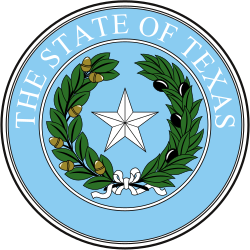| |||||||||||||||||
 | |||||||||||||||||
| |||||||||||||||||
The 1918 United States Senate election in Texas was held on November 5, 1918. Incumbent Democratic U.S. Senator Morris Sheppard was re-elected to a second term in office easily.
| |||||||||||||||||
 | |||||||||||||||||
| |||||||||||||||||
The 1918 United States Senate election in Texas was held on November 5, 1918. Incumbent Democratic U.S. Senator Morris Sheppard was re-elected to a second term in office easily.
| Party | Candidate | Votes | % | ||
|---|---|---|---|---|---|
| Democratic | Morris Sheppard (incumbent) | 155,178 | 86.69% | ||
| Republican | J. Webster Flanagan | 22,214 | 12.41% | ||
| Socialist | M. A. Smith | 1,608 | 0.90% | ||
| Total votes | 179,000 | 100.00% | |||
| Democratic hold | |||||
| U.S. Senate |
|
|---|---|
| U.S. House |
|
| State governors |
|
| State legislatures | |
| General | |||||||||||||||||||||||||
|---|---|---|---|---|---|---|---|---|---|---|---|---|---|---|---|---|---|---|---|---|---|---|---|---|---|
| President of the Republic of Texas | |||||||||||||||||||||||||
| U.S. President | |||||||||||||||||||||||||
| U.S. Senate |
| ||||||||||||||||||||||||
| U.S. House |
| ||||||||||||||||||||||||
| Governor |
| ||||||||||||||||||||||||
| Legislature |
| ||||||||||||||||||||||||
| Lieutenant Governor | |||||||||||||||||||||||||
| Attorney General | |||||||||||||||||||||||||
| Comptroller | |||||||||||||||||||||||||
| Amendments | |||||||||||||||||||||||||
| Topics | |||||||||||||||||||||||||
| Municipal |
| ||||||||||||||||||||||||
| Mayoral |
| ||||||||||||||||||||||||
| | This Texas elections-related article is a stub. You can help Wikipedia by adding missing information. |


